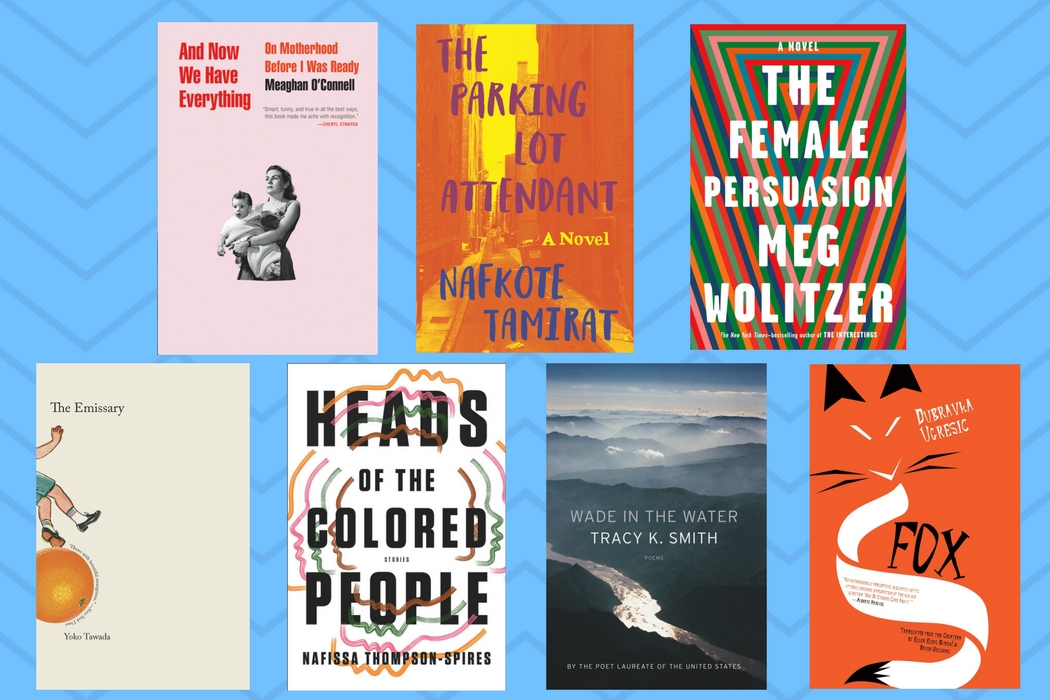Unplanned parenthood, new poetry from the U.S. Poet Laureate, and masterful translations from indie presses.
By Madeline Burg, Daley Farr, Annie Harvieux, Yana Makuwa, Annie Metcalf, Samantha Rose, and Marit Swanson
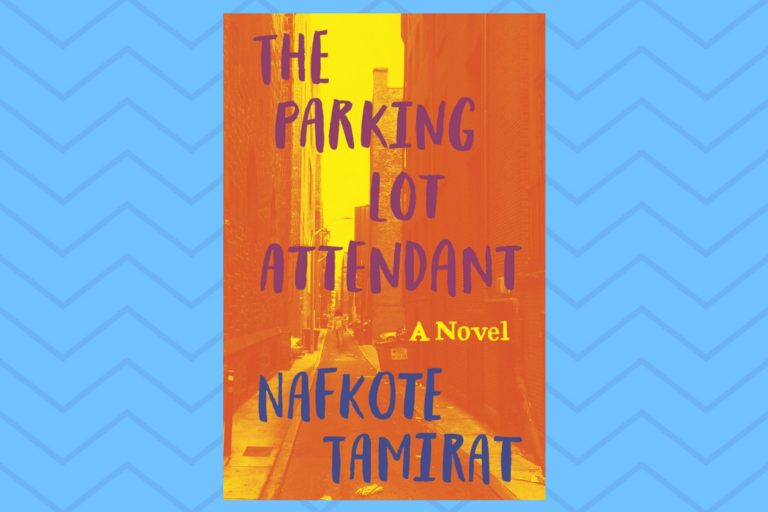
“The Parking Lot Attendant” by Nafkote Tamirat
Henry Holt and Co.
Out: 3/13/2018
Nafoke Tamirat’s debut novel “The Parking Lot Attendant” is a coming-of-age novel in which the narrator discovers that closeness and intimacy don’t always correspond with caring and support, and that charisma is often a cloak for more sinister motives.
The nameless narrator is an independent, quiet and observant teenage girl in Boston. Her stoic demeanor hides the yearning for intimacy and approval she carries desires in the wake of her mother’s leaving, and her father’s closed-off behavior since. By chance, she meets Ayale, an early-middle-aged parking lot attendant with an authoritative grasp on the city’s Ethiopian community. The narrator begins spending afternoons after school in the parking booth under the pretext of connecting with her Ethiopian heritage, but is actually developing a powerful, platonic intimacy with Ayale himself.
To divulge any more of the plot would be to spoil what this book does best: grip the reader with Hitchcockian drawling suspense and keep them flipping pages, awaiting the unfolding of characters’ motives during a late-night visit or whispered phone conversation. Despite the book’s overt coming-of-age themes, its plot is driven more by interpersonal developments than internal revelations: character development happens slowly, and mysterious outside political forces beat personal agency in every possible duel. Those who come in for a full character arc may leave wanting a bit more, but fans of lit-thrillers will be satisfied, and its unique plot with cultish twists is bound to keep readers guessing.
—Annie Harvieux

“Wade in the Water” by Tracy K. Smith
Graywolf Press
Out: 4/3/2018
From Poet Laureate Tracy K. Smith comes her fourth collection of poetry, “Wade in the Water,” a work of breathtaking scope. The poems range across topics from chemical spills to the American Civil War to motherhood. Smith’s gaze telescopes in and out, crisscrossing the globe, reaching back into history as well as inspecting the current moment.
Smith excels at assembling the perfect combination of words, compressing them down into a diamond-bright phrase. You can feel Smith’s phrases in your mouth as you read them in your head; in “Urban Youth,” which recounts memories of siblings in childhood, the speaker remembers that “Every bright day a brass / Trombone slept, leaning in your room.” Elsewhere we can hear a “clear, sun-smacked / Soundlessness,” or see “Love’s blade / Sizing up the heart’s familiar meat.”
Particularly effective are the found poems of section II. “Declaration” is stitched together from the Declaration of Independence, and the grievances of white American colonizers against King George become those of African slaves against the white colonizers; “I Will Tell You the Truth About This, I Will Tell You All About It” is taken from letters between members of African-American families at the time of the Civil War.
While the breadth of material seems daunting, this sense is tempered by the consistency of Smith’s keen observations, whether she’s meditating on a trip to China, weaving together tales of near-death experiences with harrowing details of environments ravaged by chemical spills, or addressing real-life incidents of racist violence in the weeks surrounding the 2016 presidential election. “Wade in the Water” is an exhilarating panorama of our world.
—Madeline Burg
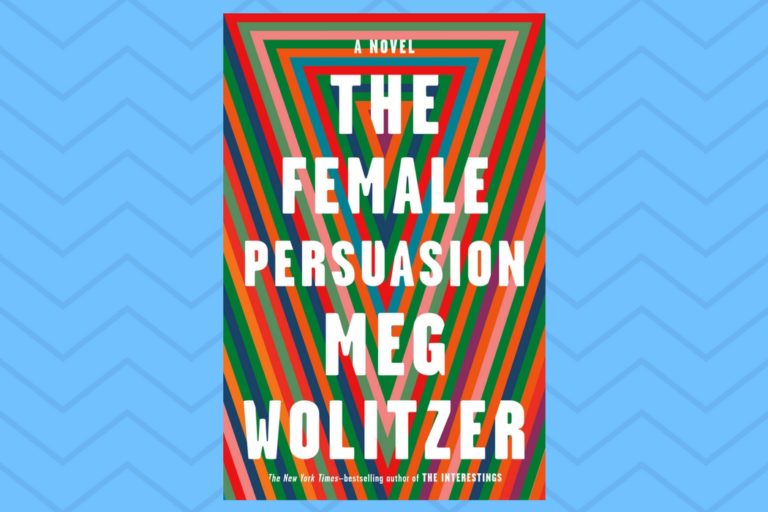
“The Female Persuasion” by Meg Wolitzer
Riverhead Books
Out: 4/3/2018
At the start of “The Female Persuasion,” Greer Kadetsky is a college freshman struggling to figure out what she wants in life when she experiences a brazen sexual assault on campus. When Faith Frank, a Gloria Steinem-type journalist turned feminist mother-figure, visits campus and connects with Greer, it launches both women on a journey in which their ideals, ambitions, and histories are examined and tested as their paths cross.
Meg Wolitzer takes an equally empathetic and critical look at both young and elder feminists in the 21st century. In doing so, she depicts the intergenerational feminist divide in all its complexity without discounting the contributions and opinions of each wave of feminism. Wolitzer also takes care to depict the specific type of grief that follows when we find our feminist heroes are compromised, an increasingly common occurrence as feminist culture re-evaluates some of its most admired figures.
Each page of “The Female Persuasion” contains revelations, minor and major, about women and how we move through the world, especially during this time of the “Me Too” movement and the resultant powerful and complicated conversations about feminism and gender. Inevitably, “The Female Persuasion” cannot depict all millennial feminist experiences and at some points the novel becomes a self-aware commentary on white feminism. Characters reckon with their own particular privilege—race, class, sexuality, gender, fame—and how it affects their actions, thoughts and options, with varying levels of success. With this book, Wolitzer deftly balances immense ideas and feminist ideology with compelling narrative, something only great novelists dream of accomplishing but only the best novelists can achieve.
—Samantha Rose
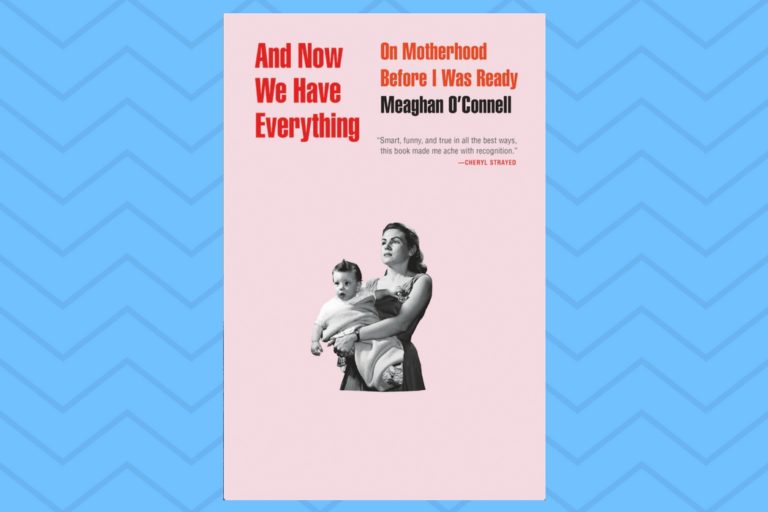
“And Now We Have Everything: On Motherhood Before I Was Ready” by Meaghan O’Connell
Little, Brown, 4/10/18
Meaghan O’Connell’s “And Now We Have Everything” is a fearless and ambitious debut, crafted with feisty humor and smart, conversational prose. In this memoir-in-essays, the author recounts her experience of accidentally getting pregnant, resolving to have her baby and pursue her aspirations as a writer just as she begins to feel her time to do both is running out.
Through fits of tears, moments of panic and fights with her partner, O’Connell describes her trials with aplomb and insight. As she unpeels the uneasy and sometimes terrifying experiences of pregnancy, childbirth and motherhood, she interrogates the cultural pressures foisted upon young women and mothers; there is so much that’s expected of us, and so much we don’t know. Struggling with whether or not to have a C-section after being in labor for two days, O’Connell writes, “I was in the most essentially oppressed, essentially female situation I’ve ever been in and I was mentally oppressing myself on top of it.” About the pressure to breastfeed, she writes, “I should have known to be suspicious of the supposed inherent reward of unpaid labor that can be carried out exclusively by the female body.”
Though intensely personal, “And Now We Have Everything” offers deep resonance for anyone who has felt the gendered shame of wanting too much or never doing enough. Ultimately, O’Connell asks, “What if, instead of worrying about scaring women, we told them the truth?” Her honesty and daring empathy—for other women on the precipice of motherhood, for her partner, for herself—beat at the heart of this necessary book.
— Daley Farr
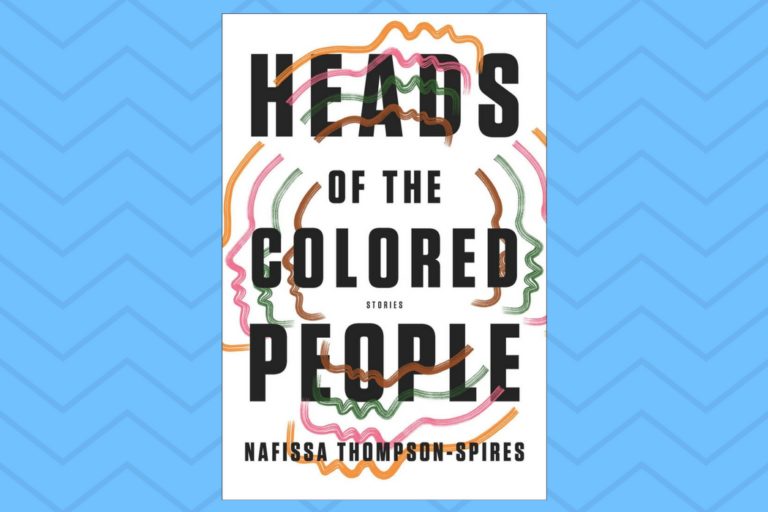
“Heads of the Colored People” by Nafissa Thompson-Spires
Atria / 37 INK
4/10/18
The opening and titular story of Nafissa Thompson-Spires’ debut collection presents us with a unifying image for the book—inspired by an earlier work, an artist wants to “create a full exhibit of heads of the colored people. . . To reflect a sort of current abjection.” The sharp and incisive stories in Thompson-Spires’ own “Heads of the Colored People” indeed reflect abjection, but more than that they put on display the identities that enfold it—from social media obsessions and fetishes to advanced degrees and fandoms.
This collection resonates on many frequencies. There are direct links between characters in several of the stories, many of whom are foils for each other, and their nuances are sure to strike a chord with any reader who’s struggled with insecurity and a search for self. In one sequence of stories, two mothers send increasingly aggressive notes to one another in their daughters’ backpacks as the magnetic repulsion between the two families grows, and in the wake, one of those daughters grows up to cycle through eating disorders and tenuous friendships, in search for her identity.
Thompson-Spires writes with grace, a lightly bitter humor, and a real eye for a detail that calls attention to the simultaneous reality and fictionality of each story. Though there are a few moments when the conceit and satire take over and leave the story with an air of exaggeration, “Heads of the Colored People” is, on the whole, a profound and truly enjoyable collection.
—Yana Makuwa

“Fox” by Dubravka Ugresic, translated from the Croatian by Ellen Elias-Bursać and David Williams
Open Letter Books
Out: 4/17/2018
In the peripatetic, shape-shifting Fox, Dubravka Ugresic weaves a story out of literary footnotes, lost manuscripts, and loners. At times witty, prickly, introspective, and tender, Ugresic’s narrator travels to literary events across Europe, then to the US, Japan, and Russia through musings on obscure literary trivia, and back to a Croatian village to inspect an inheritance. Some of the novel’s six parts are a blend of literary obscurity and imagination. Others are more narrative, transporting the reader to events and festivals, delving into the (sometimes ridiculous) minutiae of the literary circuit.
In the novel’s emotional centerpiece “The Devil’s Garden,” the narrator unexpectedly inherits a house in a small village. When she goes to move in, newly enamored with the idea of a permanent home, she finds a man already living there. The unorthodox relationship that develops, the descriptions of the countryside—both beautiful and dangerous—and the glimpses of Croatia’s fraught history results in a particularly moving, atmospheric piece.
Though Fox’s structure makes for a fragmented reading experience, the recurrence of the fox—whether as an animal literally seen in the story, or as a mythic trope on which to build thought experiments—bonds each segment together into a single journey. With this clever, uninhibited book, Ugresic stretches novelistic conventions and boldly interrogates the purpose of literature heading into the 21st century.
—Annie Metcalf

“The Emissary” by Yoko Tawada, translated from the Japanese by Margaret Mitsutani
New Directions
Out: 4/24/2018
The future of Yoko Tawada’s novel “The Emissary” doesn’t feel that far away. Oceans have risen, resources are scarce, and poisons seep from contaminated earth and air into human bodies. Many countries, including Japan, have implemented strict isolationist policies to contain the effects of innumerable catastrophes. But startlingly, despite its grim setting, this slim novel sparkles with humor, optimism, and light.
The deteriorating condition of the world comes into focus gradually through the eyes of Yoshiro and his great-grandson Mumei. Yoshiro has witnessed over a hundred years of history, yet is still able-bodied and quick-witted. His recollections, by turns eloquent and comical, form the backbone of the novel. Like all his peers, Mumei was born brittle-boned, feverish, and weak, yet uncannily wise. His affinity for geography attracts the attention of a subversive group that believes that international unity, not division, is the only hope for humanity’s future. Defying the increasingly oppressive government, they smuggle promising young people abroad in secret. Could Mumei become the society’s next emissary?
Tawada has an engaging voice and clean, quick-moving prose that makes the story accessible to a wide audience despite the experimental structure of the novel—it is written without chapter breaks, and with changing points of view that are abrupt and unannounced. Margaret Mitsutani has done a masterful job translating Yoshiro’s wry sense of humor and astute observations about subtle changes in the Japanese language. This exquisite, delightfully original gem is highly recommended.
—Marit Swanson


